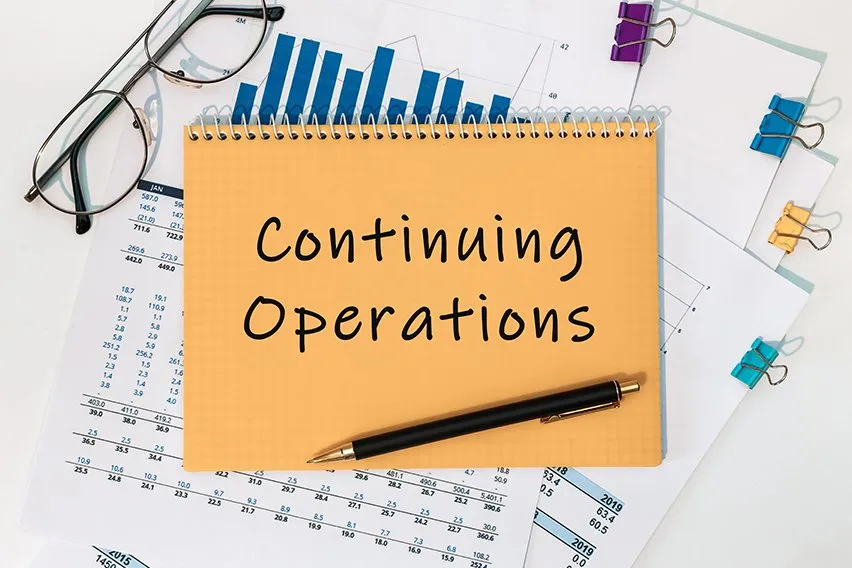Business accounting: Essential tips for every entrepreneur

Small business accounting involves the systematic recording, analysis, and reporting of a company’s financial transactions. Effective financial management is crucial for all businesses, especially small businesses. Proper accounting helps track cash flow, enables informed decision-making, and ensures compliance with tax regulations. By providing insights into a business’s financial health, accounting supports better decisions related to pricing, inventory, expenses, investments, and overall business growth.
Key takeaways
- Business accounting is essential for managing a company’s finances.
- It involves recording financial transactions, analyzing data, and reporting on a company’s financial health.
- Effective accounting helps track cash flow, supports decision-making, and ensures tax compliance.
- Small businesses can manage their accounting in-house or outsource it.
- Accounting software and other tools can help streamline the accounting process.
Table of contents
- What is business accounting?
- How to do small business accounting?
- How FreshBooks can help with small business accounting

What is business accounting?
Business accounting involves the systematic processes of recording, analyzing, and reporting a company’s financial transactions. It is essential for businesses, especially small businesses, to effectively manage their business finances, track cash flow, make informed decisions, and comply with tax regulations. Accounting provides critical insights into a business’s financial health, enabling better decision-making related to pricing, inventory management, expense tracking, investments, and growth strategies.
Business accounting plays a vital role in managing a company’s daily financial activities and setting long-term financial goals. It includes tasks such as forecasting, invoicing, financial tracking, analysis, record-keeping, and budgeting. While business accounting is particularly relevant for small businesses, large corporations also utilize accounting practices to manage their finances.
Business accounting differs from financial accounting. Business accounting focuses on internal tasks and does not have compliance regulations, while financial accounting is geared toward meeting external financial standards.
How to do small business accounting?
Small businesses must adopt effective and accurate business accounting practices to ensure financial stability and growth.
Here are essential steps to manage your business’s accounting:
Open a small business bank account
Opening a separate business bank account is essential for managing your business’s financial transactions. This practice simplifies tax preparation, protects personal assets, and can help you secure funding from creditors or investors. While some business structures, like sole proprietorships and some LLCs, may not legally require a separate bank account, it is highly recommended. Start with a business checking account and consider adding a business savings account to organize funds for various purposes, including tax planning.
Build your business credit score
Establishing a business credit score is important for securing future funding or financing significant purchases. A business credit card can help build your company’s credit rating. For corporations and LLCs, maintaining a separate credit card for business transactions is necessary to keep personal and business finances distinct. Select a business credit card that aligns with your business needs and offers benefits such as cash-back rebates or travel points.
Develop a small business accounting system
Developing an efficient small business accounting system is crucial for tracking, recording, and analyzing your business’s financial transactions. This system helps in creating financial reports, understanding your business’s progress, and making informed decisions.
Small business owners can choose to manage their books themselves using accounting software or spreadsheets, or they can hire a bookkeeper or accountant. It’s also important to select an accounting method:
- Cash method: This method recognizes revenues and expenses when cash is received or paid.
- Accrual method: This method recognizes revenues and expenses when transactions occur, regardless of when cash changes hands.
Businesses with revenues under $5 million can typically use the cash method, while larger businesses must use the accrual method.
Track your small business expenses
Accurate expense tracking is essential for monitoring business growth, preparing tax returns, and developing financial statements. The IRS requires businesses to maintain documentation that supports the income, credits, and deductions claimed on their tax returns.
Common business expenses that need to be tracked include:
- Meals and entertainment
- Out-of-town business travel
- Auto-related expenses
- Business gifts
- Supplies
- Professional services (e.g., CPA, attorney)
- Home office expenses
Expense tracking software, such as FreshBooks, can streamline this process and ensure accuracy.
Set up a small business payroll system
Setting up a small business payroll system is necessary when hiring employees. This involves creating a payroll schedule, withholding the correct taxes, and managing employee compensation. Businesses can use payroll software to simplify payroll processing or outsource this function. It is also important to track payments to independent contractors and file the required 1099 forms at the end of the year.
Choose your payment methods
Selecting appropriate payment methods is crucial for receiving payments from customers. Depending on your business type, you may accept payments in person, through a point of sale (POS) system, or online. Options include mobile credit card readers, POS systems, and online payment platforms. For in-person payments, a merchant account may be required to process transactions.
Set up sales tax procedures
Setting up sales tax procedures is essential, as sales tax rules vary for online and in-person sales. Online stores must consider the customer’s location when charging sales tax, while brick-and-mortar stores charge tax based on their business location. Businesses must also be aware of state and local tax laws and any obligations to collect and remit sales tax.
Know your tax obligations
Understanding your tax obligations is critical for compliance. Tax obligations vary depending on your business structure. Common business taxes include income tax, excise taxes, employment taxes, and self-employment taxes. Business owners must also be aware of tax deadlines and the requirements for filing tax returns and paying estimated taxes.
Calculate gross margins
Calculating gross margins is essential for assessing your business’s profitability. Gross margin represents the amount of money a business retains after covering the direct costs of producing its products or services. It is calculated by subtracting the cost of goods sold (COGS) from revenue and dividing by revenue.
Get business funding
Securing business funding may be necessary for growth and expansion. Lenders typically require financial statements, including a balance sheet, income statement, and cash flow statement, to assess a business’s financial health. Before obtaining any loan, it’s crucial to evaluate the return on investment (ROI) by comparing expected financing expenses, projected new revenue, and interest costs.
Find high-quality accounting partners
Collaborating with skilled accounting partners can provide valuable support for managing your business finances and planning for growth.
Consider working with:
- A certified public accountant (CPA) for audited financial statements and audit support.
- A bookkeeper for day-to-day record-keeping, reconciling accounts, and managing accounts receivable and payable.
- Tax professionals for tax return preparation, tax planning, and reducing your tax burden.
Periodically review your accounting methods
Regularly reviewing your accounting methods is essential to ensure they remain effective as your business evolves. As your business scales, you may need to upgrade from simple spreadsheets to more advanced accounting solutions. Reassessing the time and costs associated with bookkeeping can help you identify opportunities to streamline your accounting processes and potentially reduce expenses.

How FreshBooks can help with small business accounting
FreshBooks accounting software can significantly simplify various aspects of small business accounting. Its features can help businesses track expenses, manage payroll, generate invoices, and gain valuable insights into their financial performance. By automating and streamlining accounting tasks, FreshBooks empowers small business owners to save time, reduce errors, and make informed financial decisions.
RELATED ARTICLES

 What Is a Good Liquidity Ratio?
What Is a Good Liquidity Ratio? Cash Basis Accounting: Definition, Example, Pros and Cons
Cash Basis Accounting: Definition, Example, Pros and Cons What Is the Matching Principle and Why Is It Important?
What Is the Matching Principle and Why Is It Important? What Is Fair Value Accounting?
What Is Fair Value Accounting? Continuing Operations: What Are Continuing Operations of a Business?
Continuing Operations: What Are Continuing Operations of a Business? How to Calculate Overhead Costs in 5 Steps
How to Calculate Overhead Costs in 5 Steps